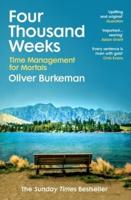Publisher's Synopsis
Excerpt from Cézanne
The men of means in Aix, leaving their big cool halls after the midday meal, and hastening to their daily game of dominoes along the narrow strip of shade that the edge of the roofs wrests from the sun on one side of the deserted street, the co'ach men of the Cours Mirabeau who half turn in their seats to exchange a phrase or two of patois through the dust and din of the wheels, the beggars who choose the hour for mass to go and sun themselves against the wall of saint-sauveur, - all can re member having seen frequently - in the last years of the nineteenth century and the first years ofthe present one, a singular old man. Almost all knew his name, very few had heard his voice. In the morning he was scarcely to be met, save at the hour when he returned for lunch, for he started out for his work at dawn. In the afternoon he would again set forth for the suburbs, on foot almost always, sometimes in a cab. In the even ing he went to bed before the table was cleared; he never dined out, he never had callers. The people of Aix had long since settled his case. Cézanne passed for a madman.
Fairly tall, a bit stoop-shouldered, with a beard that at some times he allowed to cover his cheeks, white-moustached, with a high forehead and a bald cranium, he had the look of an old soldier whose garrison life had dealt rather ill with him. A nose veined with purple, red eyelids that drooped and watered, and a prominent lower lip rendered his face less martial. He wore ordinary city dress - a black jacket, trousers a bit corkscrewish, a round felt hat in winter, a straw hat in summeroften he carried a game-bag slung over his shoul der; occasionally he wore a cape. But his apparel was not to be inspected too close by. When one could get near him one saw that he had not put on his cravat, or that his collar was tied on with string, or that his coat was spotted with paint. He avoided the glances of passers-by. When they met his eyes, they read in them a timid savagery sometimes a ?ash of anger which would be hidden by the droop of his eyelid - at the same time his pace would quicken almost to one of ?ight. He seemed like a man hemmed in, seeking, as he did, the quietest streets and often making a brusque turn out of his way to avoid meeting people. The bad boys of the town knew him well and would run after him and throw stones at him. Cézanne would make away as fast as the swelling of his old legs permitted. But his itinerary, practically the same every day - from his town house to his country house, from his country house to his studio, from his studio to.bis town house - made him their prey. Only on Sundays he left his customary route to go to mass and vespers, when he sat on the Vestry-bench of the blond cathedral whose nave they fill with laurels, orange -trees and oak at each opening of the panels of the Burning Bush that Nicolas F roment of Avignon, King Rene es painter, hung there, five centuries ago. On that day there would be a perfect hedge of poor wretches at either side of the door, for they knew that Cézanne would come with his pockets full of small coin.
About the Publisher
Forgotten Books publishes hundreds of thousands of rare and classic books. Find more at www.forgottenbooks.com
This book is a reproduction of an important historical work. Forgotten Books uses state-of-the-art technology to digitally reconstruct the work, preserving the original format whilst repairing imperfections present in the aged copy. In rare cases, an imperfection in the original, such as a blemish or missing page, may be replicated in our edition. We do, however, repair the vast majority of imperfections successfully; any imperfections that remain are intentionally left to preserve the state of such historical works.









